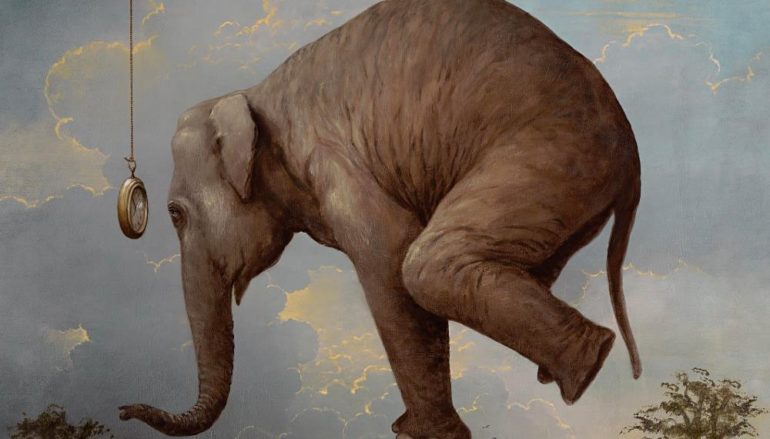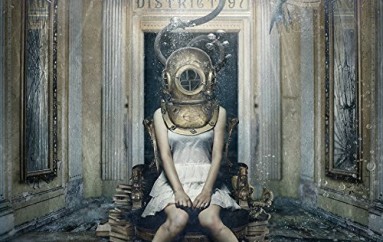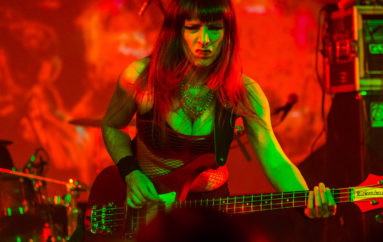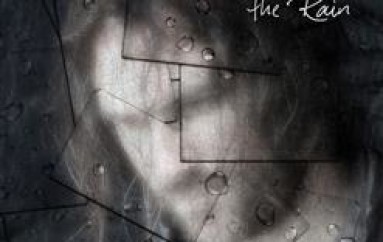
The Flower Kings «Waiting For Miracles» (2019)
Swedish progressive rockers The Flower Kings (TFK) have returned for real: without the excuse-like word “revisited” in the title and with new material. This was preceded by almost five years of silence, and even six, if you count from the previous studio album “Desolation Rose” (however, looking back at the band’s career, such long breaks aren’t that surprising). The prelude to the return was Roine Stolt solo album “Manifesto of an Alchemist” (2018, released under the name Roine Stolt’s The Flower King), as well as performances of “Stolt and Friends” and TFK(R), though only with the old songs. And now comes a new album. The bandleader, guitarist/singer Roine Stolt, guitarist/singer Hasse Fröberg and bassist Jonas Reingold are onboard. Many fans, however, were frustrated by absence of keyboardist Tomas Bodin: something went wrong with his participation in the reunion, and it’s a pity. However, his successor, Zach Kamins from American band An Endless Sporadic, not only accurately reproduced the entire TFK keyboard timbre palette, but also made a great contribution to the composition and arrangement of new material. Speaking of the drummer, the Italian Mirkko DeMaio (Stamina, Mind Key, Vivaldi Metal Project, Hangarvain), he knows his deal perfectly, and his playing manner is well-fitted to harmonious sound of The Flower Kings.
Most importantly, a new album exists, and it is very good. The spirit of “flowering” felt in it, a magical mystery tour to unknown worlds. “Waiting for Miracles” is close to such TFK works of the 90s as “Flower Power” and even “Back in the World of Adventures”. Although there are no epics and multi-part compositions like “Garden of Dreams”, there are many beautiful themes, catchy tunes, exquisite “vignettes”, psychedelic instrumental sections, wonderful moments of musical “fooling around”, as well as lovely eclecticism and, of course, “divine lengthiness” without which TFK doesn’t seem to be TFK at all. And the preaching and tragic tone that was so clearly heard in the later CDs like “Banks of Eden” (2012) and especially “Desolation Rose” (2013) almost disappeared on this album. Of course, the current work of The Flower Kings, as before, is referring to the giants of 70s symphonic rock – Yes, Genesis, Procol Harum, ELP, and the Swedish prog represented by Kaipa. This legacy is being turned into something new, thereby responding to the audience’s demands for the revival of the “golden age” of progressive rock.
“Waiting for Miracles” is not a concept in the full sense of the word, but there are several cross-cutting themes, which go through the whole material. One of them is a dreamy romantic “House of Cards” piano theme by Zack Kamins, which opens the album and reappears it the beginning of Disc 2, but in an accelerated and somewhat parody form. The other example is the themes from the powerful “Miracles for America”. Its vocal refrain and keyboard/guitar melodies interleave the whole album in several variations. “The Bridge”, one of the most touching ballads ever written by Roine Stolt, is connected with “Steampunk” and “The Crowning of Greed”, and so on. Unfolding this weave of melodic ideas is a special pleasure.
Another feature of the album is the combination of “fairytale” and modern subjects, which makes “Waiting for Miracles” such a multidimensional and relevant work. “House of Cards” merges into “Black Flag”, a catchy and mysterious song about pirates, rather unexpected theme for prog rock. Screams of seagulls, sounds of the ocean, a bright melody, sea wolves waiting for the wind – the adventure begins! The next “Miracles for America” shows another side of the “journey”: it is dedicated to the fate not just this country, but the whole world. TFK mastermind Roine Stolt has been worrying about the political games, globalization, wealth and poverty for a long time. Political protest is not something alien to prog rock (think about Roger Waters), and Stolt, who is keenly aware of any injustice, continues this tradition, whether we like it or not.
Anyway, there are lots of beautiful and stunning tracks on the album. “Vertigo” is a soaring, airy song with beautiful vocal harmonies, where high and gentle Hasse Fröberg’s vocal line creates a simply dizzying effect. In the instrumental part of this song, on the contrary, the appearance of some gloomy and disturbing guitar tunes, fretless bass slides and drum “passages” gives the impression of drowning into complete darkness. Not-so-angry “Wicked Old Symphony” with its old fashioned, beatlesque melody built as a dialogue of the main vocalists. The album’s most dramatic song, “Sleep With the Enemy”, based on powerful contrast between a deeply sad, strained Stolts’ tune and a tense, baroque-style Fröberg’s chorus. Truly, TFK have not yet forgotten how to play with listeners’ emotions and can squeeze a tear from prog-lovers eyes! And “We Were Always Here” with its rumble of shamanistic percussion, echoing voices and their joyful choir give hope: “kings” are here, they always were, are and will be. Soothing last chords, on which waves are rolling, complete the theme of wanderings…
Instrumental tracks on the album are impressive too. One of them is the little rock symphony “Ascending to the Stars” by Zack Kamins, perhaps one of the best compositions on the album at all. Zack, a graduate of Berkeley College, wrote this piece of music several years ago for a string orchestra, and now it fits perfectly into the TFK style – performed by “live” violins and viola (guest musicians Paul Cartwright and John Dellinger), strings, multi-timbered keyboards, rock and orchestral percussion, bass and, of course, Roine Stolt’s electric guitar. The track begins pastorally (the “cosmic” calls of brasses resemble Grieg’s “Morning” or the soundtrack to the sci-fi film); suddenly the gothic “choir” invades, and then, accompanied by strings pizzicato, the flight to the stars begins – the electric guitar enters into a kind of dialogue with the «orchestra» (here one can recall the «Concerto» of Deep Purple, as well as King Crimson, Stravinsky, and even Bizet, especially in the «Spanish» theme that arises at the climax).
The sound quality is exceptionally good. The album was recorded at the Stockholm-based RMV studio, owned by Benny Andersson (ABBA). It is important that all the musicians worked together in studio, and their interaction reflected on the record. Of course, many of the instruments available in the studio were used – different kinds of vintage and modern keyboards, and also marimba, vibraphone, timpani, ukulele and even a banjo (at least on the photo Zack poses with it). The use of real string section – for the first time on TFK records – has already been mentioned above. Jonas Reingold, as always, flashed the skill of playing the fretted and fretless bass instruments. Some parts were performed by the first TFK bassist Michael Stolt. The smooth guitar sound and the subtle phrasing by Roine Stolt, as always, are recognizable. However, this time Hasse Fröberg did not play any guitar parts (if the booklet is correct on this matter). This is probably because he worked a lot with his own band Hasse Fröberg and Musical Companion, which recently also released a very strong album “Parallel Life”. But Hasse sang magnificently, and this is the most important.
Of course, one could say that the album is too long and it could be shortened by a couple of tracks. But then we would have loose some beautiful music, and in general the concept of “miracles” would be incomplete. So let everything will be as it is. The double album for all true progressive rock fans, a bottle of rum for all the pirates, time and place for everyone under the sun.
Elena Savitskaya
progressive rock 10/10
InsideOut Music / Sony Music




